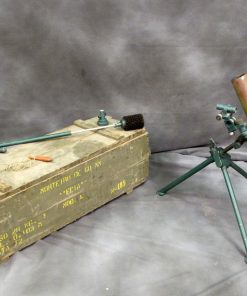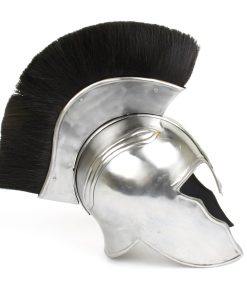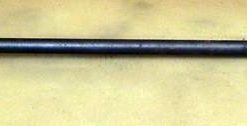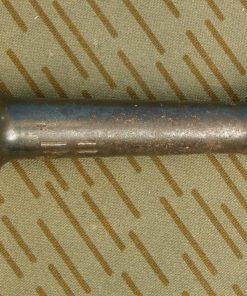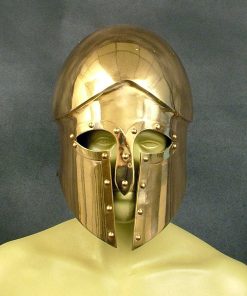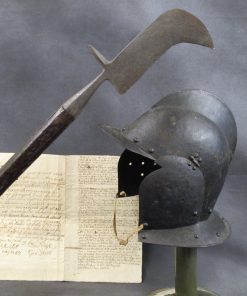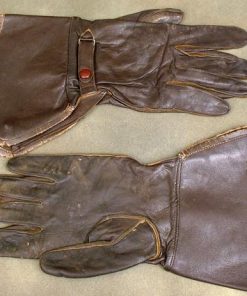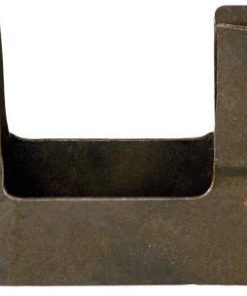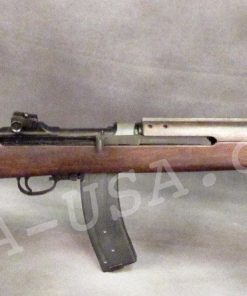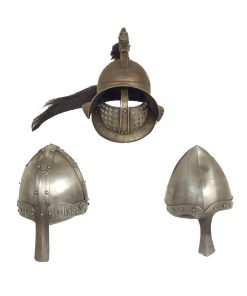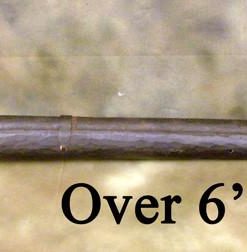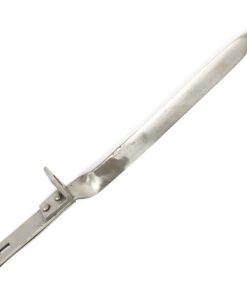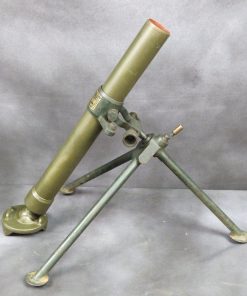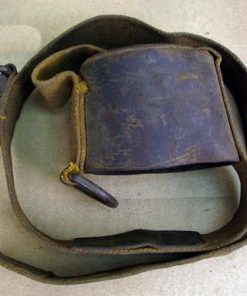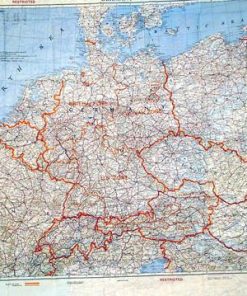Original German Pre-WWII SMS Hannover Battleship Mediterranean Cruise Photo Album – Spain, Italy & Greece Original Items
$ 495,00 $ 148,50
Original Item: One-Of-A-Kind. This is a lovely photo album of Seiner Majestät Schiff (His Majesty’s Ship) SMS Hannover. This 14” x 9 ½” album features a lovely “Ferrari” logo in the upper left corner, which is a leaping white horse on a red shield trimmed in white. The lower right corner features the albums title:
Mit linienschiff Hannover (With liner Hanover)
Durchs mittelmeer (Through The Mediterranean)
Nach Spanien, Italien und Griechenland (to Spain, Italy and Greece)
There are 90 pictures in total and are just absolutely beautiful. The pictures show life not only aboard the SMS Hannover, but shore leave and liberty in Spain, Italy and Greece. Almost all of the photos have a description in white text on them in German. They show coastlines, other German vessels, Gibraltar, Valencia Spain, Spanish Nationalists and parades. The images also show the sailors enjoying some sightseeing in various locations of spain as well as Greece at the Poseidon Temple, The Acropolis, The Parthenon, and a group photo in front of ancient Greek ruins and many, many more!
This is truly one of the most beautiful photo albums we have seen here at IMA. The quality is top notch and of professional clearity. This album would display nicely in any Pre-WWII German Naval collections!
SMS Hannover
SMS Hannover (“His Majesty’s Ship Hannover”) was the second of five Deutschland-class pre-dreadnoughts of the German Imperial Navy (Kaiserliche Marine). Hannover and the three subsequently constructed ships differed slightly from the lead ship Deutschland in their propulsion systems and slightly thicker armor. Hannover was laid down in November 1904, launched in May 1905, and commissioned into the High Seas Fleet in October 1907. The ship was armed with a battery of four 28 cm (11 in) guns and had a top speed of 18 knots (33 km/h; 21 mph). The ships of her class were already outdated by the time they entered service, being inferior in size, armor, firepower, and speed to the revolutionary new British battleship HMS Dreadnought.
Hannover and her sister ships saw extensive service with the fleet. The ship took part in all major training maneuvers until World War I broke out in July 1914. Hannover and her sisters were immediately pressed into guard duties at the mouth of the Elbe River while the rest of the fleet mobilized. The ship took part in several fleet advances, which culminated in the Battle of Jutland on 31 May – 1 June 1916. During the battle, Hannover served as the flagship for IV Division of II Battle Squadron; she was not heavily engaged during the battle, nor was she damaged by enemy fire. After the battle, which exposed the weakness of pre-dreadnoughts like Hannover, she and her three surviving sisters were removed from active duty with the fleet to serve as guard ships. Hannover served in this capacity for the remainder of the war, first in the Elbe and, starting in 1917, in the Danish straits. She was decommissioned in December 1918, shortly after the end of the war.
The ship was brought back to active service in the Reichsmarine, the post-war German navy. She served with the fleet for ten years, from 1921 to 1931, during which time she took part in several major overseas cruises to Spain and the Mediterranean Sea. Hannover was again decommissioned in September 1931; the navy planned to convert the ship into a radio-controlled target ship, but this was never carried out and she was instead used in explosive tests. Hannover ship was ultimately broken up for scrap between 1944 and 1946 in Bremerhaven. Her bell is preserved at the Military History Museum of the Bundeswehr in Dresden.
Fast Shipping with Professional Packaging
Thanks to our longstanding association with UPS FedEx DHL, and other major international carriers, we are able to provide a range of shipping options. Our warehouse staff is expertly trained and will wrap your products according to our exact and precise specifications. Prior to shipping, your goods will be thoroughly examined and securely secured. We ship to thousands clients each day across multiple countries. This shows how we're dedicated to be the largest retailer on the internet. Warehouses and distribution centres can be located throughout Europe as well as the USA.
Note: Orders with more than one item will be assigned a processing date depending on the item.
Before shipping before shipping, we'll conduct a thorough inspection of the items you have ordered. Today, the majority of orders will be delivered within 48 hours. The delivery time will be between 3-7 days.
Returns
The stock is dynamic and we cannot completely manage it because multiple stakeholders are involved, including our factory and warehouse. So the actual stock may alter at any time. It's possible that you may not receive your order once the order has been made.
Our policy is valid for a period of 30 days. If you don't receive the product within 30 days, we are not able to issue a refund or an exchange.
You can only return an item if it is unused and in the same state as the day you received it. You must have the item in its original packaging.
Related products
Uncategorized
Uncategorized
Uncategorized
Uncategorized
Uncategorized
Uncategorized
Armored Burgonet Helmet & Polearm from Scottish Castle Leith Hall Circa 1700 Original Items
Uncategorized
Uncategorized
Angolan Rebel 1970s era 60mm Inert Display Mortar from Angolan Civil War Original Items
Uncategorized
Uncategorized
Uncategorized
Armoured Fighting Vehicles of the World: AFVs of World War One (Hardcover Book) New Made Items
Uncategorized
Uncategorized
Uncategorized
Uncategorized
Australian WWII Owen MK1 Machine Carbine SMG Custom Fabricated Replica with Sling Original Items
Uncategorized
Uncategorized














